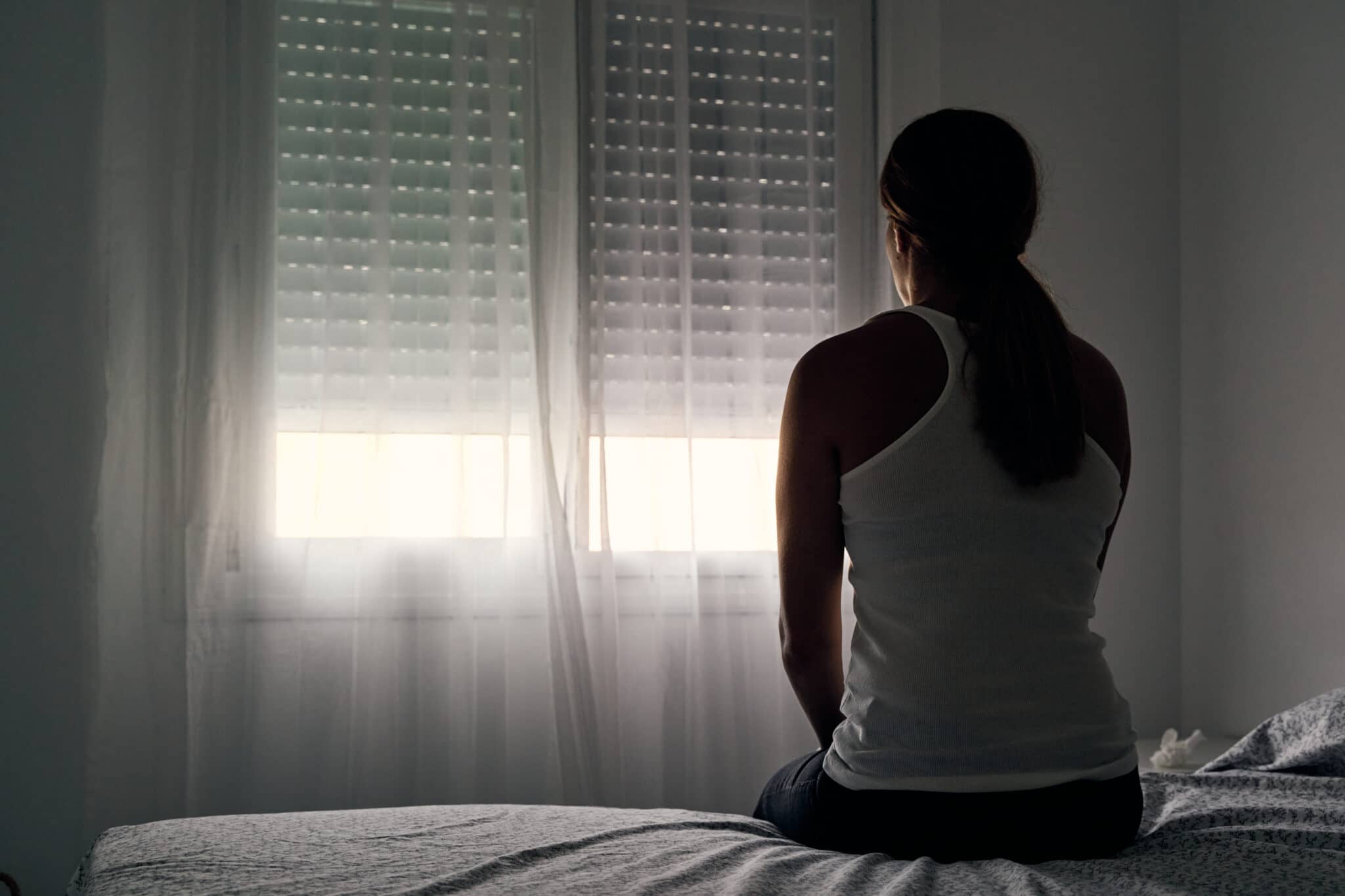Women’s Aid criticised for exclusion of trans women (Alvaro Medina Jurado/Getty Images)
Domestic abuse charity Women’s Aid has been criticised for supporting the exclusion of trans women in need of support.
In a statement on Tuesday (22 March), the charity explained that while it will “continue to support trans women”, it supports members who deem it necessary to exclude trans women from women-only refuges and other single-sex spaces.
Under the Equality Act, it is legal to exclude trans people from single-sex spaces if doing so will achieve a legitimate aim.
Women’s Aid explained that single-sex services may exclude even trans women who have a Gender Recognition Certificate, however it will “signpost” specialist services if it cannot accommodate them.
The charity said: “Our priority is to meet the needs of all survivors to have spaces where they can heal and be provided with trauma-informed support… we know from our members that many women and children who have been subject to male violence and abuse need access to support and accommodation which is provided in single-sex spaces as this reduces their distress and trauma.
“Some members conclude that it is not appropriate to include trans women (including those with a Gender Recognition Certificate) in women-only shared spaces. We support their right to make this assessment, as long as they do so lawfully”.
THREAD
Today we publish our single-sex services position, following a consultation with members & stakeholders. We are proud to have a range of services, including single-sex services & services that meet the needs of trans & non-binary people. (1/2)
— Women’s Aid (@womensaid) March 22, 2022
LGBT+ anti-abuse charity Galop criticised the move by Women’s Aid, stating that it does not see “trans inclusion as being in conflict” with providing care to all women.
“We are concerned that, in approaching trans-inclusion in this way, Women’s Aid is inaccurately conflating trans women with perpetrators of abuse and violence,” Galop said in a statement.
“What we consistently see through both our frontline work and our research is that trans people do not have safe, trans-inclusive spaces to go to when they need to flee.
“As a result of this lack of safe provision for trans and non-binary people, we see trans people that we work with having to choose between staying in dangerous and abusive situations or facing dangerous and damaging alternatives, including homelessness.
“There should not be a hierarchy of victimhood, and there should be provision of enough high-quality, survivor-centred, safe, and specialist services for all victims and survivors of abuse and violence.”
Galop’s statement on Women’s Aid’s position on the inclusion of trans women in single-sex services.https://t.co/zKTxoOZZAf pic.twitter.com/2ftb7wAz5p
— Galop (@GalopUK) March 22, 2022
Sammy, a 40-year-old trans woman living in London who has experienced domestic abuse, told PinkNews that the move by Women’s Aid “reinforces that we’re not seen as real women by professionals”.
After she experienced abuse and began looking for refuges, “it was really hard to tell which one, if any, would offer any help”, she said.
“It [the Women’s Aid statement] doesn’t really change anything, but it signals to the GC [gender critical] crowd that their pressure tactics are working, and reinforces that we’re not seen as real women by professionals,” she added.
“It’s upsetting that care is unconditional for cis women but that we will be considered on a case by case basis.
“Even if their services haven’t changed I wouldn’t approach them now. ‘You might get help or you might not, depends’ really isn’t what people in emergency situations need.”
We will continue to campaign for funding and informed commissioning so that every DA service can meet the needs of its service users. Services should be funded properly by commissioners to provide much needed high-quality specialist domestic abuse services for all survivors (2/2)
— Women’s Aid (@womensaid) March 22, 2022
Farah Nazeer, chief executive of Women’s Aid, told PinkNews: “Our focus is – and will always be – ending domestic abuse and advocating for all survivors to have access to appropriate support.
“We welcome trans and non-binary survivors to contact Women’s Aid, as they have always done. Where we do not have the expertise to support all needs, we refer on to specialist organisations.
“The publication of this statement sees no change to the way that our member services are run, and many of our member organisations run services that are accessible to trans and non-binary survivors, and welcome trans and non-binary survivors as service users.
“We will be working with our membership moving forward to better meet the needs of trans women and non-binary survivors, as learning and expanding our knowledge is a key part of our position.”
